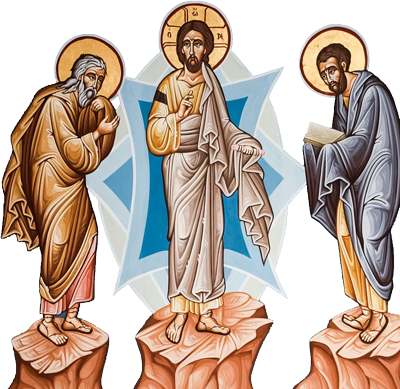Baptisms, because they are joyful events joining new members to the Body of Christ, are public events at Holy Transfiguration. Almost all Baptisms take place during the Divine Liturgy on Sunday or another Feast day. Only for extraordinary reasons would we celebrate a Baptism "privately."
We expect that children who are Baptized will be reared as members of the Church, with Sponsors and parents seeing to it that the child is raised in a Christian home and is brought to services and to Communion regularly. To do anything less is a great disservice to the child.
For this reason, Baptisms are typically performed for persons who are members of Holy Transfiguration parish, with Sponsors/Godparents who are known to be practicing, faithful Orthodox Christians.
Fr Michael may refuse to perform a Baptism if these expectations cannot be met.
Fr Michael follows the OCA's Guidlines for Clergy with respect to Baptisms, the text of which is below.
The following directions, from the Guidelines for Clergy (Orthodox Church in America, 1998), address various issues surrounding the celebration of Baptism and are considered normative for our practice at Holy Transfiguration.
Baptism and Chrismation must be understood and experienced as corporate acts of worship and praise. The must be communal actions of the Church as the mystical Body and Bride of Christ, common liturgical actions of the whole people of God, witnessed, celebrated and accomplished by all, together in one place, at one time. See: On the Spiritual Life in the Church, Encyclical Letter, Holy Synod of the Orthodox Church in America, 1988.
- Baptism is normally performed in the temple. In the case of an adult baptism, the rite may take place outdoors at a suitable aquatic site. Preferably, each deanery should have at least one large baptismal font designed for the immersion of adult catechumens.
- The candidate for baptism should bear the name of a recognized Orthodox saint. This matter should be discussed with the prospective parents long before the birth of the child. An adult convert to the Church should also bear the name of an Orthodox saint, especially if the name given at birth is unusual to the Orthodox tradition.
- The Mystery of Holy Baptism is administered in full accordance with the Office of the Service. No exorcism or prayer is to be shortened or omitted. Baptism is properly performed by triple immersion; therefore, mere pouring is not normally permitted. It is necessary to have a font large enough for full immersion.
- The final step in Christian Initiation is the partaking of the Holy Eucharistic Mysteries. In the instance of Baptism or Chrismation, it is desirable that the newly illumined receive Communion as soon as possible from the chalice, during the Divine Liturgy, and not from the reserved sacrament.
- The sponsor of a candidate for Holy Baptism is a guarantor to the Church that the person will be reared and/or educated in the Orthodox faith; he/she must be a practicing member of the Orthodox Church. A person can guarantee only that which he/she possesses and practices; therefore, a non-Orthodox is unable to guarantee sponsorship because he/she has neither the faith nor the practice. The sponsor should be of the same gender as the candidate.
- A worthy sponsor is already leading a full sacramental life, confessing sins through the Mystery of Penance and receiving Holy Communion. The priest is to instruct the parents and the sponsors of their respective obligations to the catechumen, and to exhort them to live a full sacramental life. The sponsor, as well as the parents, should be prepared to receive the Eucharist at the time together with the newly baptized person.
- A person who has excommunicated himself/herself, or has been suspended from reception of the mysteries by a hierarch, for whatever reason, is ineligible to be a sponsor.
- The child’s parents or an adult catechumen may request that a non-Orthodox person witness the mystery. That person may be present and considered an honorary witness if there is no negative or scandalous deterrent. This person, however, is not the sponsor of the candidate or the Godparent.
- The priest must enter the required data in the parish metrical book after carefully ascertaining all necessary information that includes checking all facts and spelling for accuracy and completeness.

